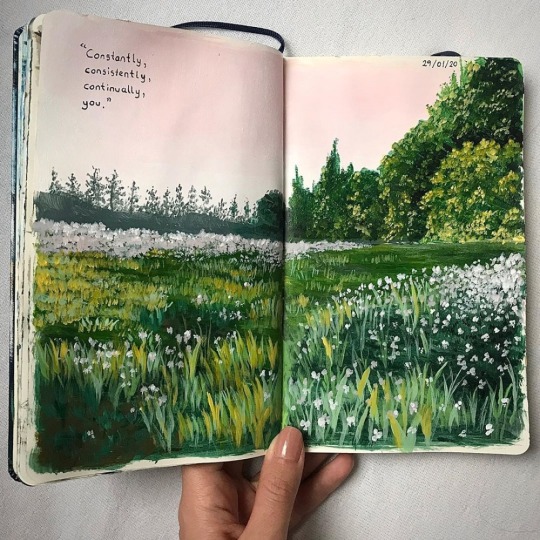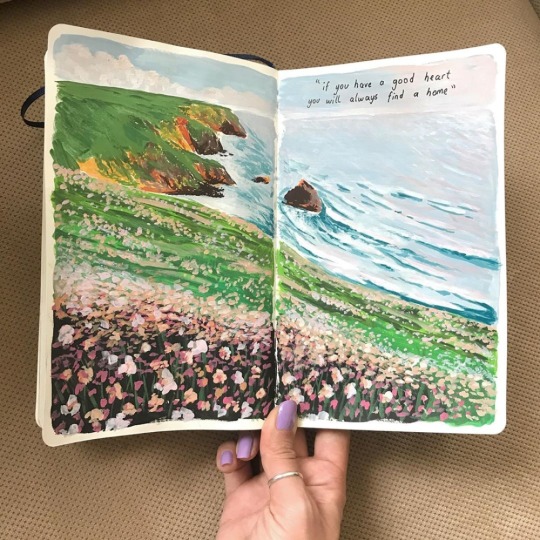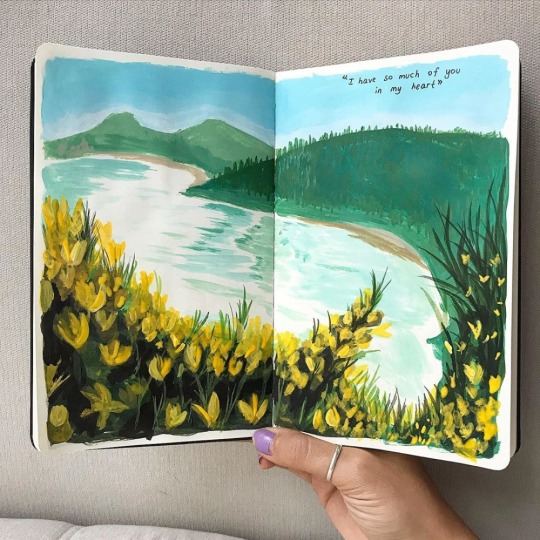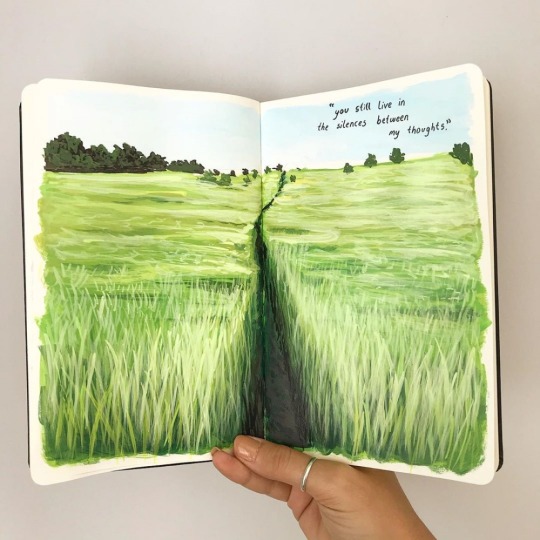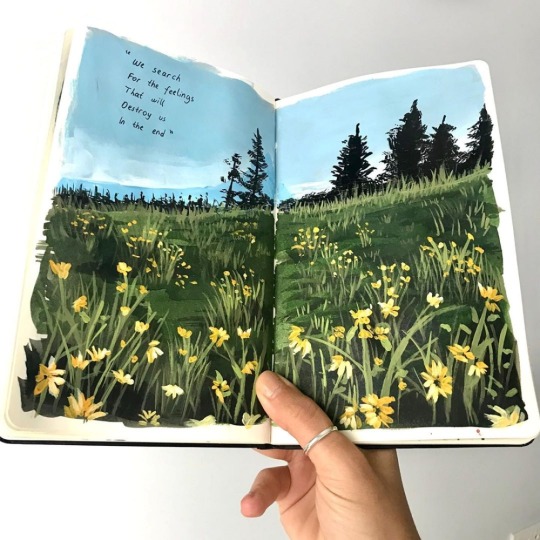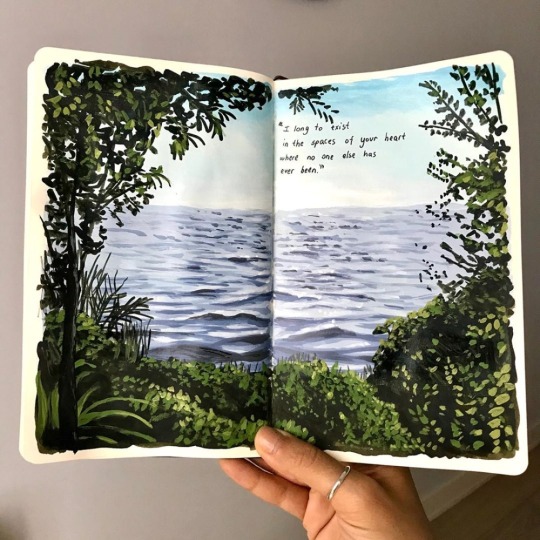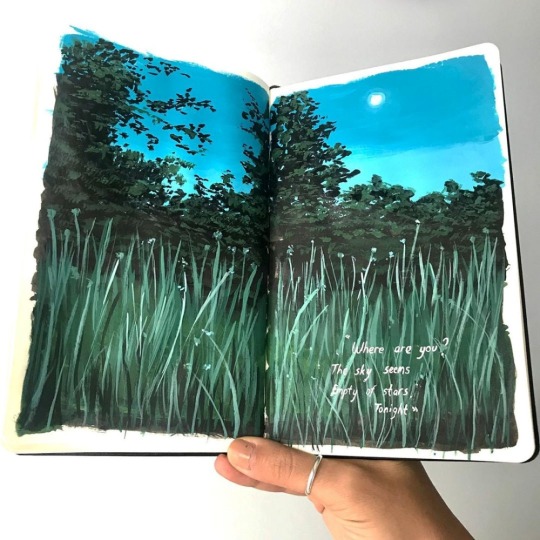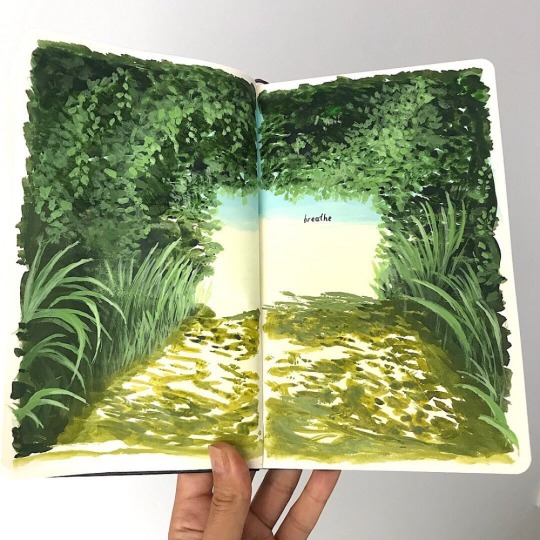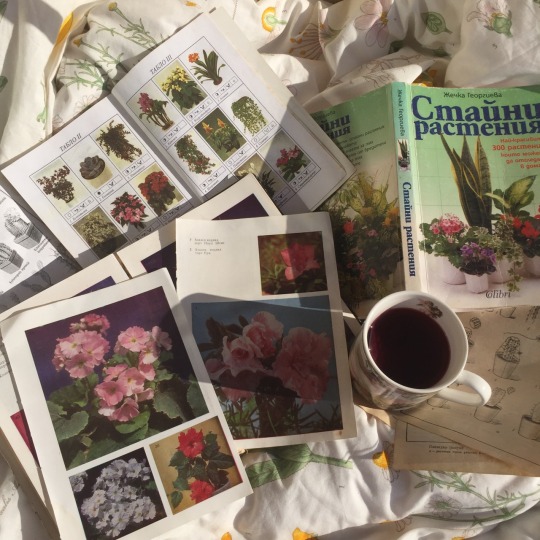Note
Thoughts on efficient ways to read (and, by extension, organise your notes on) academic papers? Specifically as a PhD student where (unlike discrete chunks of research for your BSc or MSc thesis) you just kinda... never stop doing it
Hey there!
Ugh I feel you. My “to read” pile has literally never gotten smaller these past couple of years because there’s always sooo! much!
Here’s a post on how I personally read research articles (reblogged from my personal blog before this blog was born)
How I organize print-outs of reading material (scroll down to my reblog)
I also save an electronic pdf of each paper in their own subject folder. For example, my dissertation project is on ER+ breast cancer bone metastasis, so I have separate folders for papers on ER Signaling, Breast Cancer, Bone, Metastasis (general), ER+ Bone Metastasis, etc. When you start out with your project you may only have a few folders, but over time you may find yourself dividing them into more and more specific categories.
I use excel to keep track and summarize papers (this is a method my PI also uses)
Here’s a super comprehensive post from @astudyinphd on how they read and organize their papers (both electronically using OneNote and physical print-outs, where they use my binder method from above)
I also recommend getting a citation manager to make your life easier when it comes time to write manuscripts/grants/etc. I use Mendeley because it’s free and cloud-based, but other options include Zotero (also free) and EndNote (costs $ but some institutions may have institutional licenses so it’s free for you). Here are a few other options.
I hope this helps!
608 notes
·
View notes
Photo

What do you do when you’re stressing over your IOC??? Make avocado toast ! ✨ 1/100 Days of Productivity ✨
12K notes
·
View notes
Link
Take care of your body
Take a Break: The Importance of Rest and Relaxation
I Think I Need to Go the Emergency Room?
Run With Me If You Want to Save: Exercising Will Save You Money
Take Advantage of No-Copay Medical Care
Ask the Bitches: Ugh, How Do I Build the Habit of Taking Meds?
Blood Money: Surviving Your Period While Poor
On Pulling Weeds and Fighting Back: How (and Why) to Protect Abortion Rights
Ask the Bitches: How Can I Survive in an Apartment with No Heat?
Take care of your mind
Our Master List of 100% Free Mental Health Self-Care Tactics
How Mental Health Affects Your Finances
Ask the Bitches: “How Do I Protect My Own Mental Health While Still Helping Others?”
Kurt Vonnegut’s Galapagos and Your Big Brain
Everything Is Stressful and I’m Dying: How to Survive a Panic Attack
Stop Recommending Therapy Like It’s a Magic Bean That’ll Grow Me a Beanstalk to Neurotypicaltown
Making Decisions Under Stress: The Siren Song of Chocolate Cake
Ask the Bitches: I Know How to Struggle and Fight, but I Don’t Know How to Succeed
Ask the Bitches: How Can I Absolve Myself of Financial Guilt Over My Pricey PS4?
The Frugal Introvert’s Guide to the Weekend
Update: I Know How to Struggle and Fight, but I Don’t Know How to Succeed
Take care of your time
Stop Measuring Your Time in Beyoncé Hours
Help! I’m Procrastinating and I Can’t Get Up!
You Won’t Regret Your Frugal 20s
Actually, Fuck Big Goals
How to Insulate Yourself From Ads
I’ve Succeeded at Every New Year’s Resolution I’ve Ever Made. Here’s How.
Romanticizing the Side Hustle
Take care of your career
High School Students Have No Way of Knowing What Career to Choose. Why Do We Make Them Do It Anyway?
The Actually Helpful, Nuanced, Non-Bullshit Way to Choose a Future Career
Woke at Work: How to Inject Your Values into Your Boring, Lame-Ass Job
Are You Working on the Next Fyre Festival?: Identifying a Toxic Workplace
My Secret Weapon for Preparing for Awkward Boss Confrontations
Freelancer, Protect Thyself: The Importance of a Fair Contract
Confession: I Hate My Job and I Don’t Know How to Leave It
A New Job, a New Day, a New Life, and I’m Feeling Good
Episode 009: “I’ve Given up on My Dream Career. Where Do I Go From Here?”
Take care of your space
Leaving Home before 18: A Practical Guide for Cast-Offs, Runaways, and Everybody in Between
Ask the Bitches: I Want to Move Out, but I Can’t Afford It. How Bad Would It Be to Take out Student Loans to Cover It?
How to Successfully Work from Home Without Losing Your Goddamn Mind (Or Your Job)
Take care of your people
How Dafuq Do Couples Share Their Money?
Ask the Bitches: “How Do I Protect My Own Mental Health While Still Helping Others?”
How Can I Tame My Family’s Crazy Gift-Giving Expectations?
Ask the Bitches: I Was Guilted Into Caring for a Sick, Abusive Parent for Years. Now What?
Take care of your financial well-being
Ask the Bitches: How Can I Make Myself Financially Secure Before Age 30?
How to Save for Retirement When You Make Less Than $30,000 a Year
Ask the Bitches: Is It Too Late to Get My Financial Shit Together?
Slay Your Financial Vampires
Should Artists Ever Work for Free?
Don’t Spend Money on Shit You Don’t Like, Fool
How I Learned to Stop Worrying and Love Financial Math
Share My Horror: The World’s Worst Debt Visualization
Stop Undervaluing Your Own Work, You Darling Fool
1K notes
·
View notes
Text

Hello! As finals season (aka 5-research-papers-due-in-a-week season) dawns on many of you, I thought I would share the process I used to write papers in college. This made writing long research papers much less daunting (but can also work on shorter papers). I really hope this helps some of you who feel stuck. Especially during these ridiculous times, when you’re stuck at home and might have other uncontrollable factors affecting your mental health, a clear framework of what to do could be helpful. Good luck, my friends! You got this.
About me
I graduated college in 2018 with degrees in Political Science + International Studies and will be starting law school this fall. I wrote nearly 20 15 to 25-page papers, never earning below an A. I loved researching about my topics but hated writing. It’s tedious, takes so much time, and everything I write sounds bad at first. Plus, I was a terrible procrastinator so most of these essays were written in under a week. Talk about stress.
Over time I found a process that worked for me, one that made churning out a paper seem straightforward, like going through a factory line rather than this terrifying concept of writing 10,000 words. It kept me sane without decreasing the quality of my work (or more importantly, how much I learned!)
I’m thinking about making a short video to show this in action… let me know if that could be helpful!
Step 1: Research
How you organize your research is a key step in keeping you sane. Usually I’ll have a pile of 20 books in my dorm along with dozens of JSTOR tabs open on my laptop, and that can get overwhelming very fast. Right now just focus on collecting ideas, not developing an argument or even an outline! As with most research papers, you could be starting with little to no background information on the topic, so it is still too early to be thinking about an argument.
Put all your research in one document
Open up a new doc: this will be the heart of everything. For a 15-page paper I usually end up with around 14-18 pages of typed research, 10 pt font, single spaced, tiny margins. This seems like a lot, but essentially all I do is type up anything I read that seems relevant to my topic, so luckily this step does not require that much brain power. Just type type type!
Use the table of contents
Find the chapter(s) that are actually relevant instead of skimming through the whole book. Time is of the essence here!
Use Zotero, cite right away
You can also use easybib or whatever you’re used to, but keep track of your sources. I like Zotero because I can keep a log of all of my sources and copy the footnote or bibliography version whenever needed. Before you even begin reading, cite the source and copy it into your research doc. This will save you so much time later when you have to put in your citations in the actual paper.
Here is an example of what my research doc looks like:
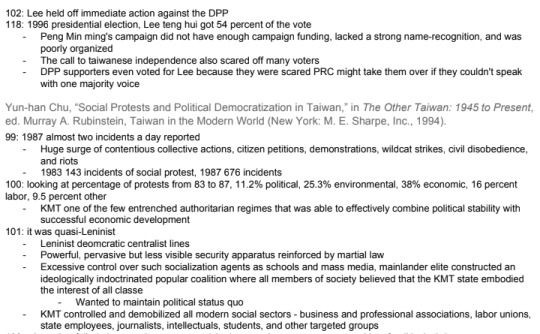
Full citation is my heading for each source just so it’s crystal clear
I ignore all typos (I don’t think there are any in this part though, go me!) because my head is buried in the book just trying to get all the info down
I always start with the page number so I know what to cite when I go back
Create a shorthand
While typing up research, you might think of something that the author didn’t talk about that you’ll want to write in your paper. Or perhaps a few sentences already start to form. Put them all in one place, with your research, so you know what source you’ll have to cite to then lead into your idea. I type “!@#” before anything that is strictly my own idea so I’m never confused. It’s fast and stands out.

This is an example: the two bullet points above are evidence from my source, which made me think of this argument I could make, which I noted with “!@#”
Step 2: Read Your Research
Now that you have all your information, go back and read through it all. Every time you read about a new theme/person/event, write it down somewhere. You may come up with a list of 20+ different ideas in your research. No matter how small, as long as there is something about it, write it down. Each of these mini themes is going to end up being a paragraph in your paper or combined with another mini theme.
Once you’ve made your list, look for larger overarching themes. In the paper I’ve shown you, I had mini categories like “political party x” “religion” “labor groups” “little organization” and “hierarchy.” When I looked back I though, hey these are all groups and how groups are working together, so they each became their own mini paragraph under the subsection of “Alliances.”
As with most research paper structures, I try to find three general themes/subsections (like an extended version of that 5-paragraph essay we wrote in middle school). It makes the paper less messy and also makes sure I’m not covering things that are beyond a reasonable scope.
During this step, you are also searching for your thesis. It won’t be your final version. As you fill in your outline in the next step you may make slight changes. But this is definitely when you start thinking about it.
Step 3: Outline
We’re ready to outline! Once I’ve collected all my different themes and organized all my subsections and paragraphs, it’s time to fill in that outline. I start a new doc just for the outline and take advantage of google doc’s headings function to make a clear document outline.
Here comes the fun part, I read through my research one more time, this time copy and pasting all my research into each section of the outline. The document outline in google docs makes this easy because I can just click on each subheading to get me there (super helpful when you’re dealing with 15+ pages of research).
Here is what it looks like:

Let’s say I need to add something to my outline about labor groups. Boom, labor groups. Also, the typos are really abound here haha
Step 4: Write the Paper
Okay, I get it, easier said than done. BUT! You already have everything set up. Your outline is essentially just a list of your paragraphs and all you have to do is paraphrase, cite, and create a topic sentence. And that’s how you should think about this: you’re essentially transforming bullet points into sentences and adding footnotes.
In high school my English teacher introduced us to Sh*tty First Drafts for creative writing, but honestly the same applies to research papers. Sometimes I’ll even have phrases like “wait no that’s not what I meant but basically…” and when I go back to edit, I realize that what came after “but basically…” is fine! And I keep it. So just start typing.
How do you cite while you write? Because we’re trying to get a constant stream of writing going, inserting proper footnotes after each sentence you type is too bothersome. I usually split screen with my outline and my paper so I just copy and paste a few words from my bullet point into my footnote, like so:

(This is from a different paper about cluster munitions.)
Step 5: Edit the Paper
I work best when I print out my first draft and make all edits in red pen. I feel more productive and can visually see where I want to move sentences and what I need to change. The more red there is the better I can feel the paper getting. (Whether or not that’s true doesn’t matter. We’re trying to stay motivated here!) When it’s all digital I don’t really see the progress. Plus, once I finish all the red, I get another moment of passive brain work, where all I’m doing is transferring edits rather than thinking. And at this point in the process, that kind of relief is much welcomed.
The good thing about this process is there’s not usually a need to cut entire paragraphs or pages because the paper you end up with is just a formalized version of your outline. Because you started with such a detailed outline, the cutting and editing now is just to refine your word choices and get rid of the “but basically”s. You’re almost there!
Step 6: Replace your citations
Now it’s time to go back and replace your footnotes with actual citations. Zotero makes this easy because in Word you can just insert and add the page number, and it’ll automatically do “Ibid.” for you when needed. Ctrl+f in the original research doc to quickly find the source.
Step 7: One More Read-Through and Submit!
Congratulations!! You’ve got a fully-researched and well-backed paper! Of course, even though the process is straightforward, it’s still a lot of work. In ideal situations I would start researching two weeks before the deadline, but if need be, I believe I’ve done this all in three miserable panic-filled days as well.
Please message me if you have any questions at all! I really hope some of you find this helpful! Good luck!
4K notes
·
View notes
Text
Languages 101: a language learning guide by a polyglot

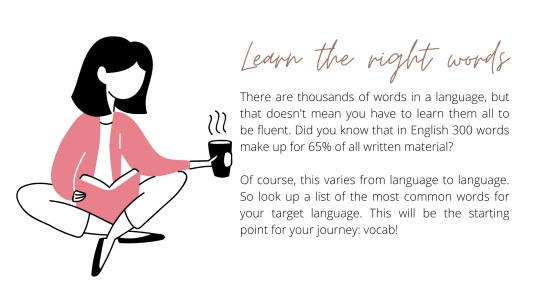
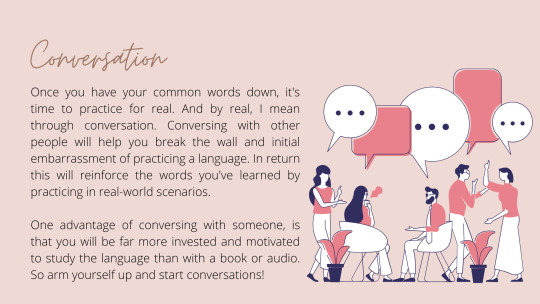
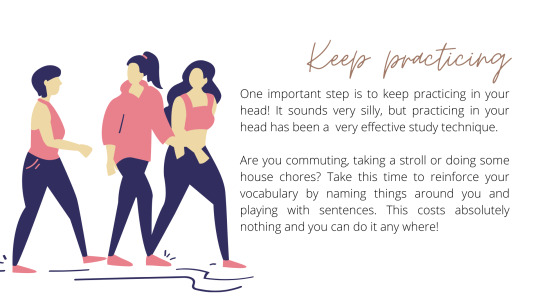
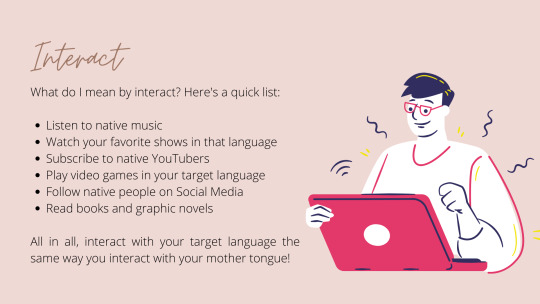

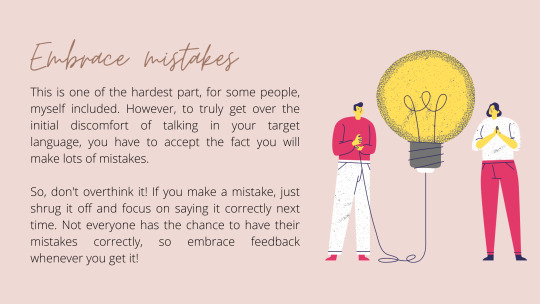
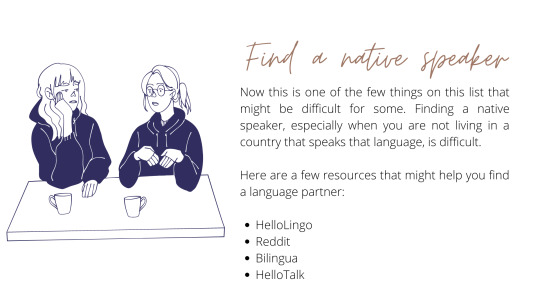
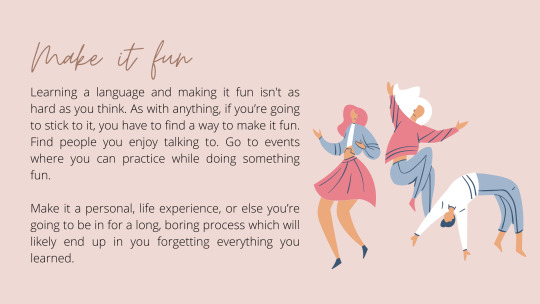

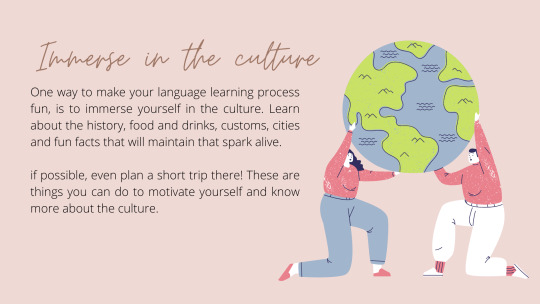
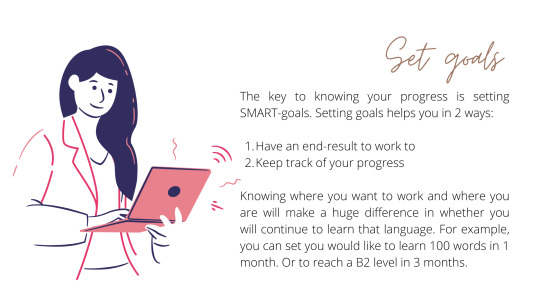
Hey, guys. Lala here! As polyglot who speaks 5 languages and learning more, I’ve been through my fair share of language learning experiences. Here, I wanted to share some tips with you guys that have helped me along my journey.
What are some language learning tips that have helped you guys? Share them with me! Do you have a question? Don’t be afraid to leave me an ask!
Read more of my content here:
5 tips on how to be productive when studying from home
My study routine for ultimate productivity
Minimalist student toolkit
Written by @lalavscollege
3K notes
·
View notes
Photo

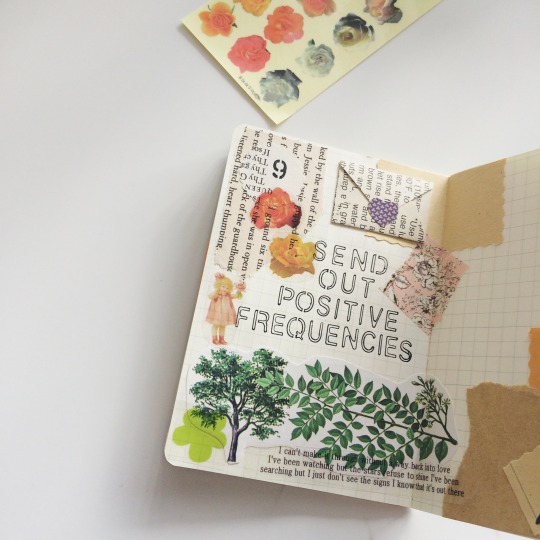
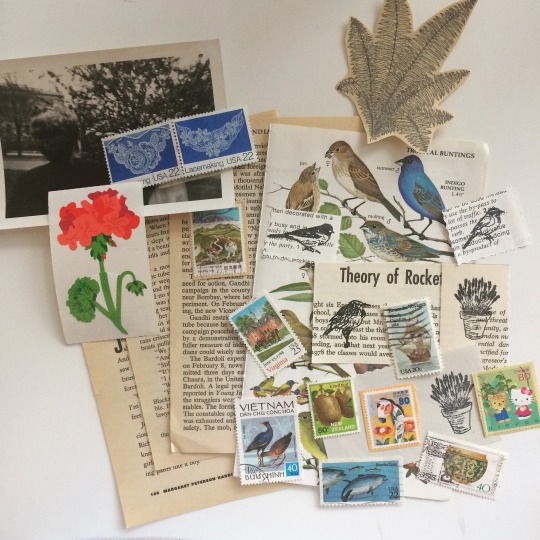
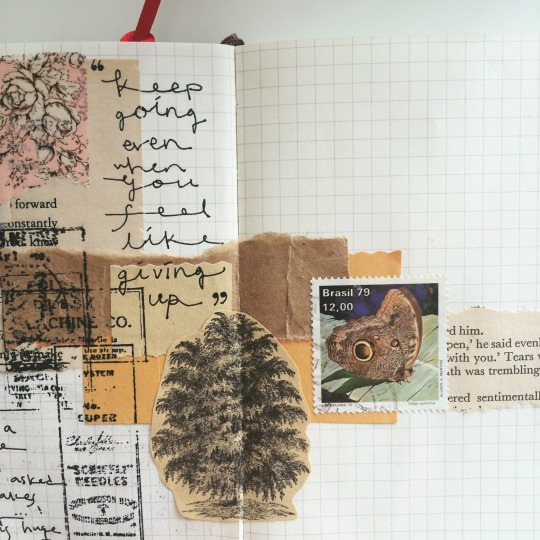
Haven’t uploaded much on my tumblr but I’ve been busy on my ig (@miavibes if you want to follow 😍). Recently I have been so so so intensely into journaling again, so here are some of my Moleskine and muji journal pages and some materials I use for journaling.
20K notes
·
View notes
Text
a guide for the school year
hello! so i reached 1k recently actually 2+ months ago so here’s an overdue masterpost on the things i would usually search up before a school term starts, so i figured why not just compile this? i would update this and reblog it monthly so if you have anything you’d like to share just drop me a message! i hope you find this useful, thank you for all the support <3
I. study tips
• study plans by @marias-studyblr
• how i study by @studynostalgic
• study tips by @etudieposts
• more study tips by @samsstudygram
• revision methods by @alimastudies
• increasing productivity by @brbimstudying
• even more study tips by @annabaestudying
• small study hack by @kawaiistudypool
• recall not recognition by @annabaestudying
• how to stay focused while revising by @minimaliststudy
• literally just use all the resources by @emmastudies
• how to study in an exam for a really short time by @studiyng
II. how to: take notes
• taking notes from a textbook by @fuckingstudy
• making mindmaps by @eintsein
• note taking by @eintsein
• a whole masterpost on note taking by @elkstudies
• college notetaking 101 by @briellestudies
III. productivity & motivation
• increasing productivity by @brbimstudying
• essay help by @aestudier
• how to: efficiency by @eintsein
• don’t feel like studying? by @martiestudies
• study apps by @nightlystudying
• studying though you’re really busy by @julstudies
IV. self care
• avoiding a burnout by @neuroticmedblr
• lil self care tips by @eleanorice
• a small, but much needed reminder by @studyblr
• burnout 101 by @polcry
• some more self care tips by @55studies
• more self care!! by @littleredstudies
• bujo ideas! by @lifestylejournaling
• important things to remember @vet-life (pls live by this ok)

2K notes
·
View notes
Photo
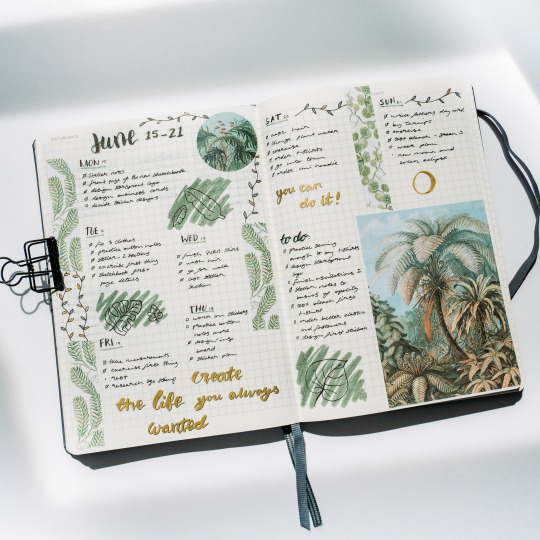



25.06.20 // 59/100 days of productivity
bujo from and last week and more photos i just found from the butterfly house in vienna :)🌴🦋
2K notes
·
View notes
Photo
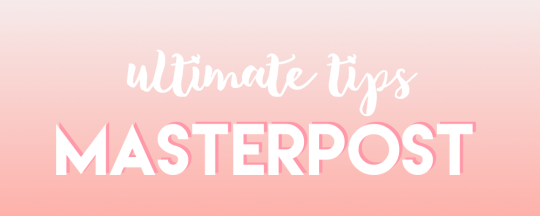
i’ve compiled a masterpost of tips that i have reblogged over the past few months and i thought it would be easier to have it all in one place. none of these posts are by me! huge thanks to everyone that has created these tips.
exams
finals: survival guide for the brave
pennyfynotes’ guide to exam season
study tips for exams
tips for doing well on exams
how to
how to accept and grow from failure
how to avoid education burnout
how to be an efficient test-taker
how to cope with exams
how to get straight a’s
how to get straight a’s 2
how to overcome failure
how to study effectively
how to study as a busy student
how to study when you don’t want to
how to utilise your studyblr
how to do well in a class taught by a crappy teacher
improve your handwriting
improve your life
productivity
5 easy productivity tips
7 productivity tips
productivity 101
the no bullshit guide to getting your shit together
school
4 tips for delivering a perfect presentation
a self care masterpost to help you get through school
school cheat sheet
back to school
back to school advice
habits of successful students
search google like a pro
useful things for those going back 2 school
study tips
6 things people don’t always tell you about studying
effective note taking
memory tips
my 3 steps in studying
memorisation tips for different types of learners
random study tips
study habits
study methods
study smarter
study tips
strategies for writing good conclusions
things not to do when studying
tips + tricks for learning a language
types of study breaks for every situation
unconventional study tips
when to use
work smarter, not harder
misc.
four rules for a disciplined life
self discipline tips
self soothing techniques
small gestures of self-love
tips on how to get up earlier if you aren’t a morning person
22K notes
·
View notes
Photo

“I hear and I forget. I see and I remember. I do and I understand.”
– Confucius
the curve of forgetting
the curve of forgetting describes how we retain or get of information we absorb.
day 1: you go into a lecture knowing 0% and come out knowing 100% of what you know (regardless of whether you know it extremely well or not)
day 2: you did not do any reviewing of your notes from day 1 therefore you have lost 50%-80%
and as the days progress we forget less and less
think about midterms! notice how around midterms when you’re trying to study for something (that you haven’t been reviewing for regularly) it feels like the material is VERY difficult and almost as if you’ve never learned it before
formula to reshape the curve
within 24 hours of your lecture spend 10 minutes reviewing the material
a week later: it will only take 5 minutes to REACTIVATE the same material
ultimately, you will reshape the curve
day 30: by this day your brain will only need 2-4 minutes to recall
information on the curve of forgetting was taken from the university of waterloo (x)
my formula to reshape the curve using the information above
before class: spend 10 minutes PREVIEWING the material.
after class: spend 10 minutes REVIEWING the material
do this regularly. this will be your preview/review system for each class.
a week later: try to review a week later. i know that school/life can get pretty hectic, but try to make sure you are reviewing regularly.
maybe record yourself saying some important details/concepts from your notes the night before and on your daily commute to school plug in those earphones and listen to it. i am an auditory learner and i find that listening to my notes before i go to bed and right when i wake up have truly helped me retain information. studies have shown that the best time to study is right before going to bed and right when you wake up.
a month later: after a month, review what you’ve learned so far in your class. trust me this will be a very very short review. everything will look very familiar to you and it won’t look as difficult as it used to.
basically your review schedule should be the following:
1 hour before learning the material
1 hour after learning the material (or within 24 hours of learning it b/c i know we’re all very busy people)
1 day later
1 week later
1 month later
remember everyone learns, studies, and retains information differently!! my personal belief is that your technique is what matters most. it is not about your innate ability/talent. find a technique that works for you.
more suggestions:
active learning > passive learning
when taking notes use the Cornell method. it forces you to ask questions and summarize what you’ve learned.
set frequent, short, review sessions
test yourself constantly! there are so many resources online.
people who are under stress have difficulty remembering things so CHILL OUT
don’t rush, take your time
repetition is key
practice MAKES PERFECT
group items together
fish, vitamin b12, and green tea can help w/ memory
don’t give up. like morrissey said “these things take time.”
52K notes
·
View notes
Text

okay, so here in california precautionary measures against COVID-19 have become increasingly intense. most schools have closed and are preparing to make the transition to “distance learning” aka online classes. this is a big change for many of us – but don’t panic!
welcome to surviving online classes 101!
–
✐ self discipline
this is more of a warning than a tip. working from home means you will have to exercise a lot more self discipline. it can be a little bit boring or lonely at times. you cannot count on motivation from others (professors, classmates, friends, etc.), so you will have to learn some self discipline.
✐ create your own classroom
a good way to make the transition is to try and mimic the classroom setting as closely as possible. something that might be helpful is to set up a space designated for work. try to avoid the temptation to work in your bed or on the couch. that trains your brain to be alert in those places and makes it harder to relax/fall asleep. at least during online lectures, try and eliminate distractions that wouldn’t be present in a regular classroom (like tv or netflix playing in the background, or having your phone out)
✐ dress for success!
dress in the way that makes you feel most productive. if you’re one of those people who usually rolls into class wearing sweats and still kills it, good for you! if you’re one of those people who needs to put on a full face of makeup to feel alive and ready for the day, do that! even at home!! i personally never wear makeup but if i try to be productive in pjs… disaster. i’ve also found that cute workout gear makes me feel badass while still being comfy.
✐ create a schedule
now more than ever you need to figure out how to manage your time. you can use a planner, bujo, google calendar, the forest app, whatever. just make sure you keep track of things like
due dates and TIMES
exam dates
lecture times
hours spent studying
meals (pls eat 3 if possible)
water intake
sleep schedule
✐ pack your bag like you usually would
i know this probably sounds so dumb, but when you’re done working clean up after yourself. pack everything up like you would at school, to sort of signal to your brain that academic time is over for now. and then unpack and set up when you’re ready to get to work again. this is just another way to trick your brain into that school mindset while you’re stuck at home.
✐ don’t overwork yourself
break up your studying into chunks. being cooped up all day can make us feel like we’re wasting time, but be sure to schedule breaks and reward yourself after a solid study session. i’m a big fan of the pomodoro method, and it can be customized really easily to allow for more or less study/rest time.
✐ maintain a healthy sleep schedule
now is the time to develop that healthy sleep schedule we all dream about. staring at a computer all day is exhausting and hard on the eyes and brain, so make sure to give them enough rest and time to recover each night. also, consider investing in glasses that block blue light, even if you don’t usually use glasses. this will keep our eyes young lol.
✐ communicate with your teachers and classmates
most of us are making this transition to online learning together. any time you have questions, email your professor. reach out to your classmates at the beginning and exchange emails/phone numbers/social media so you can build a support system. if something goes wrong, screenshot it immediately and reach out to your professor. technology isn’t perfect, and mistakes can happen, just communicate them.
✐ turn things in early
this is my biggest tip. when you are relying on online submissions for assignments and digital lectures, you always want to allow extra time to fix any errors you might encounter. your professor will also be much more willing to help you fix a problem two days before a deadline rather than two minutes before a deadline. eliminate that uncertainty by playing it safe with online submissions.
–
GOOD LUCK EVERYONE!! YOU GOT THIS!! WE GOT THIS!!
10K notes
·
View notes
Photo

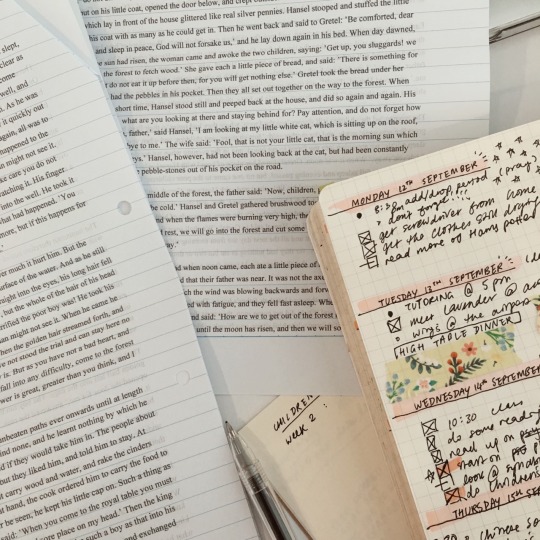
did some of my children’s literature reading (which was a bunch of grimms fairytales!!!), now I have to challenge myself to battle my philosophy assignment, which has been kicking my poor brain a lot today but if I keep my chin up and acknowledge that nothing happens without hard work, I should be alright! It’s also mid-autumn festival 中秋節!!! happy mid-autumn, dear friends 🌙 ♡
15K notes
·
View notes







